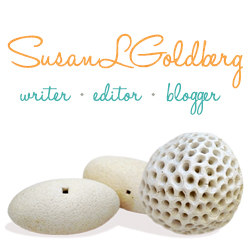Hello muddah, hello faddah
/I re-read my 1986 letters to my parents from summer camp, and I didn't barf.
Sandra Boynton, obviously.
In a fit of decluttering last week, I came across an envelope that contained some of the letters I wrote to my parents during the year I was a CIT (or, as we called them, LITs, for leaders in training) at summer camp. Which was also known as 1986. Or the summer I was 14 years old.
I read through them all, and they didn’t even make me feel like throwing up, which is what happened when I tried to read my diaries from first-year university. I guess the existential angst hadn’t settled in yet. Or maybe there’s a difference between the letters you write to your parents and the words you keep private because they’re so full of doubt and hope and misery and embarrassment that decades later they leave make you dry heave after two paragraphs.
But, no. These letters are downright cheerful. I am resolutely upbeat about being put into a tent with my nemesis from the previous year (“… We aren’t going to get into any fights this year. We’re going to be friends (<-- positive thinking)” and, later, “actually, it’s not that bad with her. I am TOLERATING her and NOT LETTING HER GET TO ME. I UNDERSTAND THAT SHE IS INSECURE AND ACTS THE WAY SHE DOES TO COVER UP FOR IT. Aren’t I learning?”). Unsurprisingly, I am sick all summer: “My strep throat and ear infection are much better.” I write at length and fairly openly about social dynamics, who likes whom, the way the little kids look up to us and how cool that is, the evening program we planned (a giant murder mystery). “Could you send a GQ magazine?” I ask my dad. “It’s a man’s magazine with all these gorgeous male models in it. I need something to put up in our tent.” In one letter, I am thrilled about how my audition went for Grease (one of the counsellors, “told me privately that I was her first choice for Sandy, and that she loved my voice, so I was really excited”), disappointed to be cast as Marty Maraschino (“‘Like the cherry’”), elated to find out they were giving me a song after all (“Freddie my Love,” which never made it into the actual movie but was a solo nonetheless). I troll unremittingly for letters and gum and care packages.
I’m fascinated by my own handwriting, by my unabashed use of exclamation marks, and by how guilelessly open I am with my parents. (Of one of the girls in a younger unit I write: “She’s changed [since last year]. She’s punk, a slut & into drugs, and she was forced to come to camp. She’s going to try and get kicked out. Get the picture?”). I thought of myself as closed off, despondent, in my own little universe where parents weren’t allowed. I think I was wrong.
I wonder about my own boys, and whether they will ever send letters home like these to me. I hope they do. I’ll probably keep them forever.














